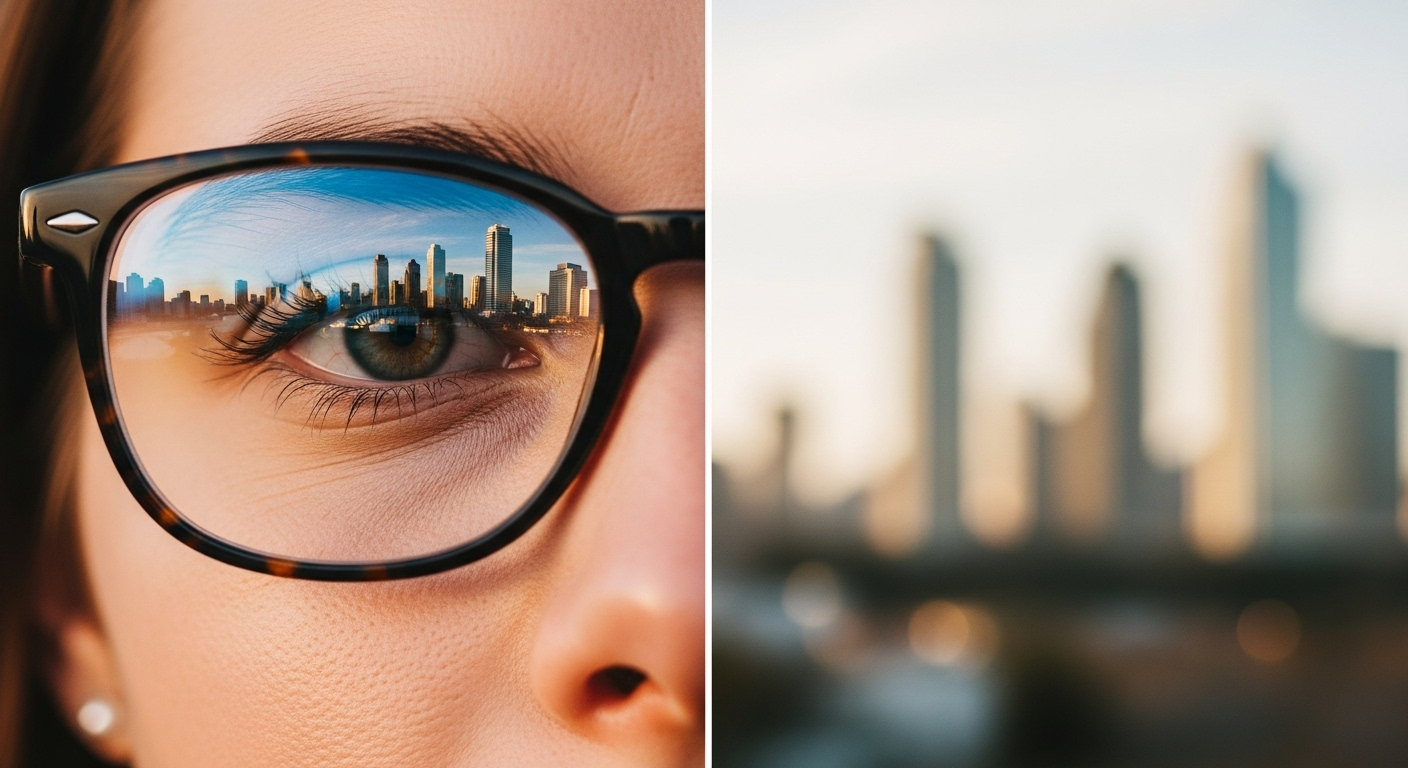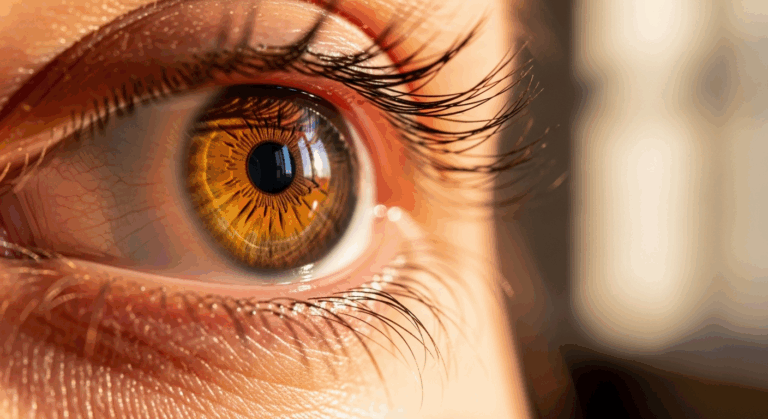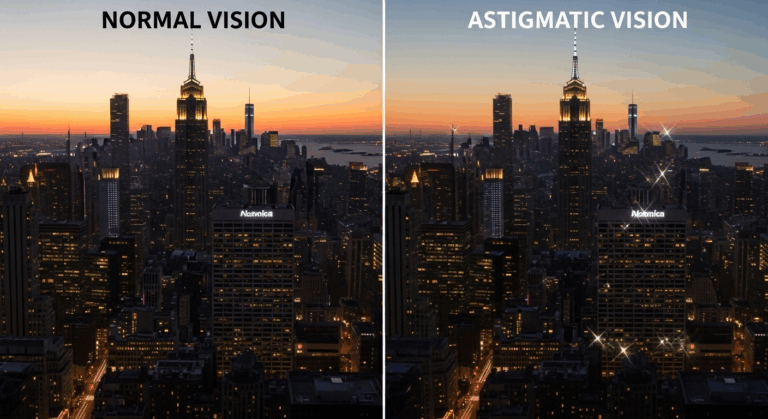So, you just walked out of the optometrist’s office with a little piece of paper that says you have “20/30 vision.” Your mind is probably buzzing with questions. “What does that even mean? Is my eyesight good or bad? And the big one: do I need to start wearing glasses?”
Take a deep breath. You’re not alone in your confusion. We get asked about these vision numbers all the time. They sound technical, but understanding them is much simpler than you think. Let’s break down exactly what 20/30 vision is and put all your worries to rest.
First Off, What Does 20/30 Vision Actually Mean?
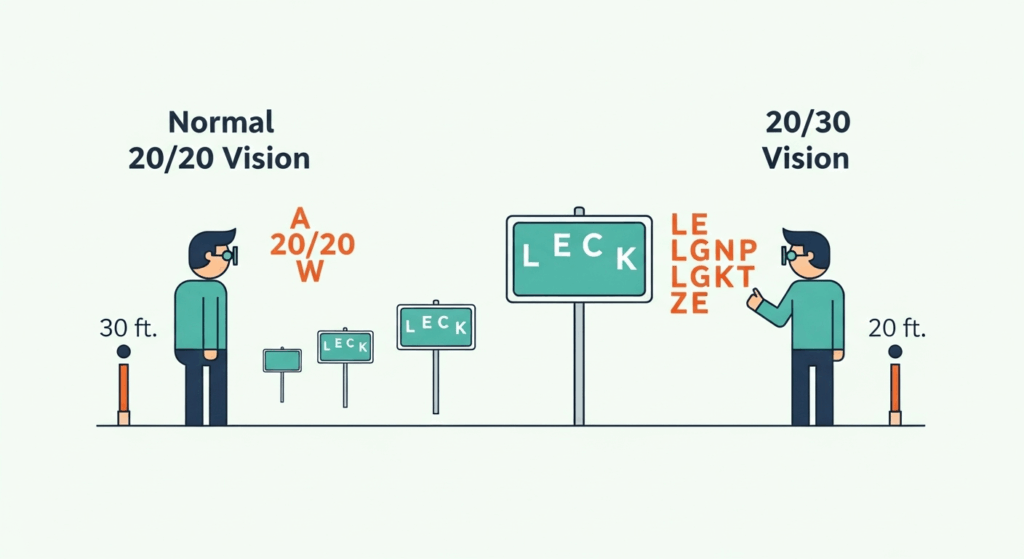
To understand 20/30, we have to talk about the classic eye chart—the Snellen Chart. You know, the one with the big “E” at the top and rows of letters that get smaller and smaller. Those numbers are a fraction that represents the sharpness of your distance vision.
Breaking Down the Numbers
The fraction has two parts, as in 20/30:
- The first number (the “20”): This represents the distance, in feet, that you are standing from the chart. In the United States, the standard testing distance is 20 feet. So, this number is almost always 20.
- The second number (the “30”): This is the key part. It indicates the distance at which a person with “normal” or standard vision (that’s 20/20) can clearly read the same line of letters that you’re reading.
So, 20/30 vision means that you must be 20 feet away to see an object clearly, whereas a person with normal vision could see that same object clearly from 30 feet away.
Let’s use a simple analogy: Imagine you and a friend are looking at a distant street sign. Your friend with 20/20 vision can read it perfectly from 30 feet away. You, however, need to walk 10 feet closer, to the 20-foot mark, to see it just as clearly. That’s the essence of 20/30 vision. It means your distance vision is slightly less sharp than the standard.
So, Is 20/30 Vision “Good”?
This is one of those questions where the best answer is: “Well, it depends.”
From a Medical Standpoint: It’s Nearly Normal
In the eyes of an optometrist, 20/30 vision is considered very close to normal. It’s just one line off from the perfect 20/20 score on the eye chart. Many people have 20/30 vision and go about their daily lives without any significant issues. So, you definitely don’t need to panic—it’s far from being categorized as “bad” vision.
In Your Daily Life: What You Might Notice
While 20/30 vision is perfectly functional for most activities, you might notice subtle differences in certain situations compared to someone with 20/20 vision:
- Reading distant road signs: You might need to be a little closer to read them with complete confidence.
- Watching TV: If you have a large living room, the subtitles might seem a tiny bit fuzzy from the couch.
- In a classroom or meeting: Sitting in the back row, you might find it takes a bit more effort to read the presentation or whiteboard.
- Driving at night: In low-light conditions, this slight reduction in sharpness can become more noticeable.
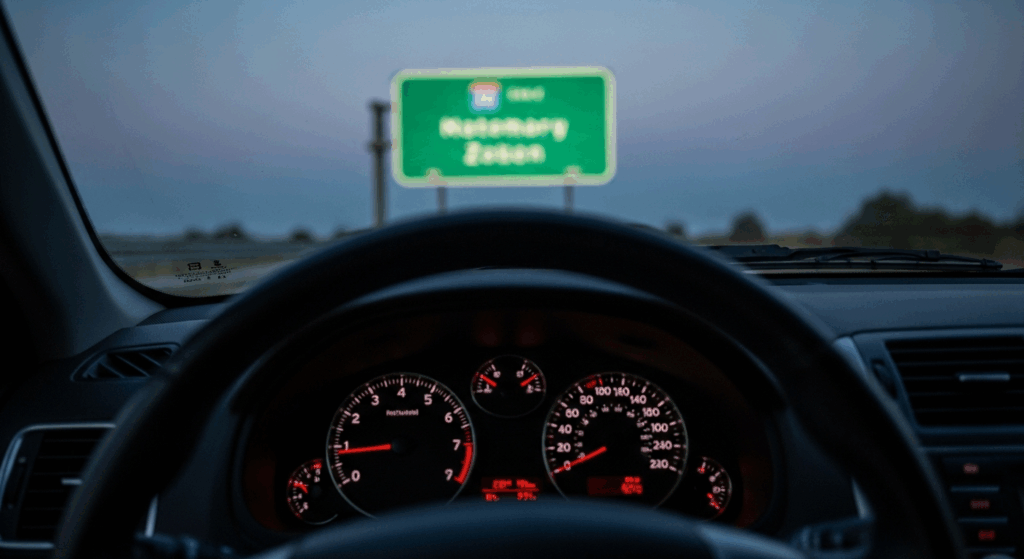
Overall, 20/30 vision falls into the category of “functionally good.” Most people can live their lives normally and even pass the vision test for a driver’s license in most states (which often requires 20/40 or better). However, it’s always a good idea to check your local requirements.
The Big Question: Do I Need Glasses for 20/30 Vision?
This is what most people really want to know. And the answer, once again, is: Not necessarily. The decision really comes down to your personal experience and lifestyle needs.
Your eye doctor will give you their professional recommendation, but the final choice is yours. A good way to decide is to ask yourself a few questions:
Signs You Might Benefit from Glasses
- Do you often experience eye strain or headaches? Especially after long periods of driving, watching a movie, or working on a computer? This is often a sign that your eyes are working overtime to focus.
- Do you find yourself squinting a lot? Squinting is a natural reflex to temporarily improve the clarity of your vision. If you catch yourself doing it unconsciously, your eyes are asking for a little help.
- Does your job or hobby demand sharp vision? If you’re a pilot, graphic designer, police officer, or you love activities like golf or archery that require precise distance vision, a pair of glasses to correct your vision to 20/20 will make a world of difference.
- Do you simply want a sharper, crisper world? Some people are perfectly happy with “good enough,” while others prefer “perfect.” If you try on a pair of corrective lenses and have a “wow, I didn’t know the world was this clear!” moment, then getting glasses is a great choice for you.

When You Might Be Fine Without Them
If you don’t experience any of the symptoms above, feel that your vision doesn’t hinder your daily activities, and are satisfied with how you see the world, then getting glasses isn’t an immediate necessity. You can think of it as an available option rather than a requirement.
Vision is More Than Just a Number
Finally, it’s important to remember this: that 20/30 number is just one measurement of your visual acuity, or the sharpness of your central vision. A comprehensive eye exam assesses much more, including:
- Astigmatism: Blurry vision caused by an irregularly shaped cornea.
- Eye Health: Screening for conditions like glaucoma, cataracts, and macular degeneration.
- Binocular Vision: How well your two eyes work together as a team.
So, the best advice we can give is to trust your optometrist. They will give you the most personalized recommendation based on your complete eye exam results, your lifestyle, and how you feel. Your 20/30 vision is just one part of the story, and glasses are simply a fantastic tool to help you see that story in the clearest way possible.
